(srpski) Advokat Sead Spahović o 25 godina od maskara u Račku: Napad na selo koje nije branjeno je po definiciji ratni zločin

Sorry, this entry is only available in srpski.


Sorry, this entry is only available in srpski.
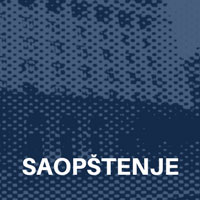
 The Court of Appeals in Belgrade upheld the conviction against Dalibor Krstović, a member of the Republika Srpska Army, for the rape of a Bosniak woman in Kalinovik in August 1992, but radically reduced the sentence from nine to only five years in prison.
The Court of Appeals in Belgrade upheld the conviction against Dalibor Krstović, a member of the Republika Srpska Army, for the rape of a Bosniak woman in Kalinovik in August 1992, but radically reduced the sentence from nine to only five years in prison.
The Humanitarian Law Center believes that the reduced sentence of imprisonment of five years, which is the legal minimum for the criminal offence of war crime against civilians, is extremely inappropriate for the gravity of the offence committed, that it does not achieve the purpose of punishment, and that such a punishment is humiliating for the victim. Inadequate punishment of sexual violence in war neglects the lasting consequences such a decision has for the victim: the victim is retraumatised, and the crime itself, as one of the most destructive crimes committed in war, is minimised in relation to other war crimes. Exceeding the accusation to the detriment of the defendant, which the Court of Appeal cites as reason for mitigating the sentence, is not such as to justify that decision.

 On 15 December 2023[1], the Court of Appeal in Belgrade upheld the verdict of the Higher Court in Belgrade, which, in the absence of evidence, acquitted the accused Nebojša Mirović of committing the criminal offence of a war crime against civilians during the summer of 1992 in the territory of the municipality of Teslić (BiH). The Humanitarian Law Center believes that the Public Office of the War Crimes Prosecutor in this case failed to argue and substantiate the indictment it had presented.
On 15 December 2023[1], the Court of Appeal in Belgrade upheld the verdict of the Higher Court in Belgrade, which, in the absence of evidence, acquitted the accused Nebojša Mirović of committing the criminal offence of a war crime against civilians during the summer of 1992 in the territory of the municipality of Teslić (BiH). The Humanitarian Law Center believes that the Public Office of the War Crimes Prosecutor in this case failed to argue and substantiate the indictment it had presented.
By the indictment of the Public Office of the War Crimes Prosecutor, Nebojša Mirović was charged on 12 counts, that during the summer of 1992, in the area of Teslić municipality, he and several members of the Teslić police station participated in inflicting physical and mental pain or suffering (torture) and bodily injury on Bosniak civilians.

Sorry, this entry is only available in srpski.
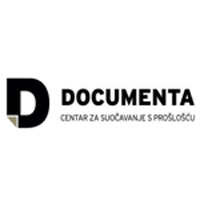
Sorry, this entry is only available in srpski.
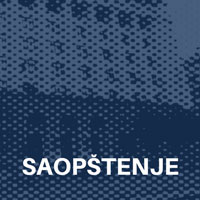
 On 30 October 2023, the Court of Appeal in Belgrade issued a decision[1] annulling the first-instance verdict in the Štrpci Case and returning the case for retrial. The Humanitarian Law Center considers it inadmissible that thirty years after the abduction and murder of twenty civilians in Štrpci, the judicial authorities are unable to conduct the procedure in a professional manner and reach a verdict.
On 30 October 2023, the Court of Appeal in Belgrade issued a decision[1] annulling the first-instance verdict in the Štrpci Case and returning the case for retrial. The Humanitarian Law Center considers it inadmissible that thirty years after the abduction and murder of twenty civilians in Štrpci, the judicial authorities are unable to conduct the procedure in a professional manner and reach a verdict.
Initiating the proceedings again implies the re-traumatisation and exhaustion of the families of the victims and witnesses in this proceeding, as well as the trivialisation of war crimes trials. Such a decision not only delays the imprisonment of the direct perpetrators, one of whom has already died during the proceedings, but also the hope that representatives of the civil, military and police authorities of Serbia and of the Federal Republic of Yugoslavia who were familiar with the kidnapping plan in Štrpci, will be prosecuted for the crime. This procedure has not contributed to the discovery of the mortal remains of the victims, which is one of the goals of the National Strategy for the War Crimes Prosecution.
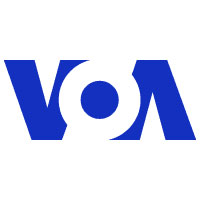
Sorry, this entry is only available in srpski.
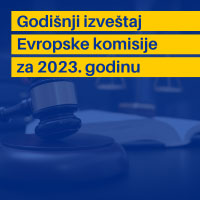
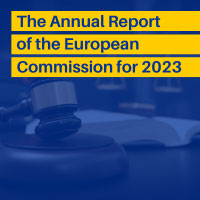 On November 8th, 2023, the European Commission (EC) adopted an annual report assessing the situation and progress of the Republic of Serbia on its path to accession to the European Union.
On November 8th, 2023, the European Commission (EC) adopted an annual report assessing the situation and progress of the Republic of Serbia on its path to accession to the European Union.
Under Chapter 23 concerning the judiciary and fundamental rights, the EC report includes an assessment of the work of relevant state institutions regarding war crimes trials in Serbia, particularly the Public Prosecutor’s Office for War Crimes (PPOWC), their cooperation with regional and international actors, as well as the efficiency and dedication to criminal justice processes.

 Among them, in the Politics & Advocacy category, are Rukshana Kapali, Nepal, Sonia Guajajara, Brazil, Monica McWilliams, UK, Summia Tora, Afghanistan, Sepideh Rashnu, Iran, Neema Namadamu, Democratic Republic of Congo, Bella Galhos, East Timor,Rina Gonoi, Japan, Maryam Al-Khawaja, Bahrain/Denmark, Christiana Figueres, Costa Rica, Tamar Museridze, Georgia, Iryna Stavchuk, Ukraine, Nataša Kandić, Serbia, Yael Braudo-Bahat, Israel, Michelle Obama, US, Shamsa Araweelo, Somalia/UK, Bernadette Smith, Turtle Island / Canada, Renita Holmes, US, Dehenna Davison, UK, Yasmina Benslimane, Morocco, Xu Zaozao, China, Alicia Cahuiya, Ecuador, Najla Mohamed-Lamin, Western Sahara, Sofia Kosacheva, Russia, Ulanda Mtamba, Malawi, Amal Clooney, UK/Lebanon and Gloria Steinem, US.
Among them, in the Politics & Advocacy category, are Rukshana Kapali, Nepal, Sonia Guajajara, Brazil, Monica McWilliams, UK, Summia Tora, Afghanistan, Sepideh Rashnu, Iran, Neema Namadamu, Democratic Republic of Congo, Bella Galhos, East Timor,Rina Gonoi, Japan, Maryam Al-Khawaja, Bahrain/Denmark, Christiana Figueres, Costa Rica, Tamar Museridze, Georgia, Iryna Stavchuk, Ukraine, Nataša Kandić, Serbia, Yael Braudo-Bahat, Israel, Michelle Obama, US, Shamsa Araweelo, Somalia/UK, Bernadette Smith, Turtle Island / Canada, Renita Holmes, US, Dehenna Davison, UK, Yasmina Benslimane, Morocco, Xu Zaozao, China, Alicia Cahuiya, Ecuador, Najla Mohamed-Lamin, Western Sahara, Sofia Kosacheva, Russia, Ulanda Mtamba, Malawi, Amal Clooney, UK/Lebanon and Gloria Steinem, US.
https://www.bbc.co.uk/news/resources/idt-02d9060e-15dc-426c-bfe0-86a6437e5234